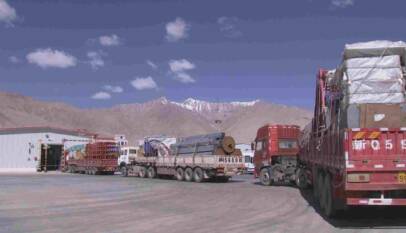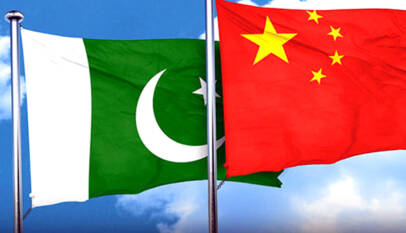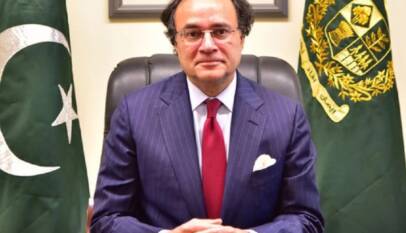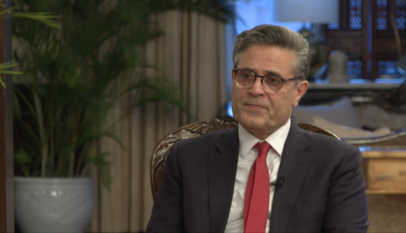China-Iran strategic partnership will strengthen CPEC: Senator Muhshaid Hussain Sayed
Islamabad Policy Institute (IPI) held a webinar on ‘China’s Expanding Investments in Iran and Pakistan: Prospects of Trilateral Cooperation’ hosted by Chairman Senate Foreign Affairs Committee Senator Mushahid Hussain Sayed. During webinar, experts suggested to develop a mechanism to promote trilateral cooperation. Senator Mushahid Hussain said that China’s strategic partnership with Iran and Indian exit from Chabahar will strengthen CPEC. With Indian expulsion from Chabahar, Gwadar port and projects under CPEC will be less vulnerable, he added.
ISLAMABAD: Experts have advised Islamabad, Beijing and Tehran to develop their trilateral mechanism to benefit from the signing of a China-Iran strategic deal.
The suggestion was put forward at a webinar hosted by the Islamabad Policy Institute (IPI), which was chaired by Senate Foreign Affairs Committee chairman Senator Mushahid Hussain Sayed.
The webinar was attended by representatives of local as well as Chinese and Iranian think tanks. It was held to discuss the proposed China-Iran pact and explore how Pakistan could benefit from it, especially after India’s gradual exit from Iran because of US sanctions.
Senator Mushahid said the “far-reaching” development augurs well for strengthening regional cooperation and connectivity. “China’s entry into Iran with strategic partnership and Indian exit from Chabahar will help secure our western borders and strengthen the China-Pakistan Economic Corridor,” he said.
India’s departure from Iran’s Chabahar projects would mean a reduced threat for Gwadar and CPEC projects, Mr Mushahid added.
Senator Mushahid said Pakistan and Iran enjoy “strategic confluence” of interests. He listed the common interests as peaceful and secure borders without each other’s territory being used by non-state actors to destabilise the other neighbour; regional economic and trade connectivity via BRI/CPEC; cultural connectivity through the common heritage of religion, history and Allama Iqbal; durable peace and stability in Afghanistan; opposing hegemony, sectarianism, terrorism and extremism; and rejecting a ‘New Cold War’ in the region.
Iran’s ambassador Seyyed Mohammad Ali Hosseini, in an article for IPI on the China-Iran partnership which was read out at the webinar, said the comprehensive document would provide a framework for “long-term and strategic cooperation in all political and economic fields and in an equal and fair approach”.
The ambassador said Iran was ready to extend its cooperation with China to other friendly countries in the region in a regional mechanism.
The senior fellow at the Centre for West Asian and African Studies, Shanghai Institutes for International Studies, Dr Jin Liangxiang, said that conditions were favourable for trilateral cooperation between Pakistan, China and Iran.
Iran and Pakistan can through this cooperation become new economic power centres for the region, he said.
He said CPEC was progressing well, but it was important for Iran to develop a national consensus on planned Chinese investment. He warned that Chinese entry into Iran could be seen by India as a challenge from China and Pakistan and it could react to the development.
The three countries, he said, could benefit through energy cooperation, construction of pipelines for transporting Iranian oil and gas to China, and improved market access.
Dr Foad Izadi, a professor at Tehran University, said there could not be better partners for Iran than China and Pakistan in its quest to defeat US ‘maximum pressure policy’.
Executive Director of IPI, Prof Sajjad Bokhari, also spoke on the occasion.
Ambassador Khalil Hashmi underscores China’s leadership in global economic development
Major initiatives and visions proposed by China align with current global needs and trends…










